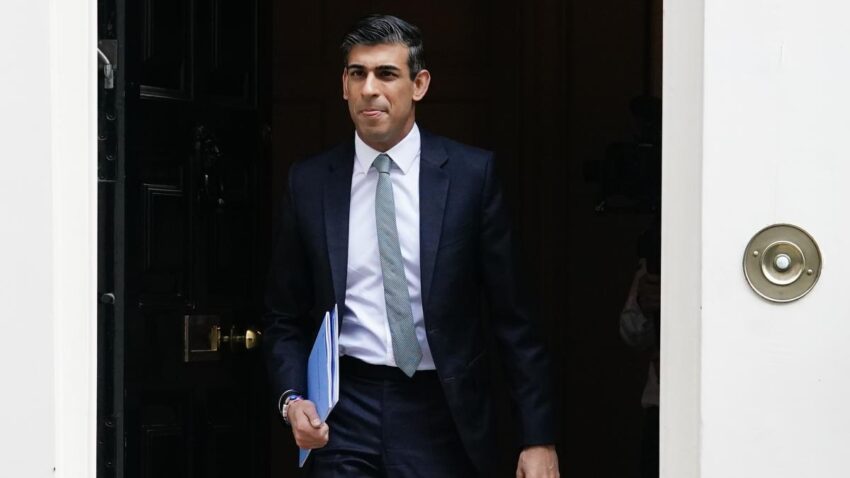Rishi Sunak arrived in Belfast on Thursday night, in a sign that a deal on the Northern Ireland protocol is imminent.
The foreign secretary, James Cleverly, will also travel to Brussels on Friday for talks with the European Commission vice-president, Maroš Šefčovič.
The movements suggest that an announcement of a negotiated solution between the UK and EU could come as early as Friday. Sunak is being accompanied by the Northern Ireland secretary, Chris Heaton-Harris, Downing Street said. Security is already in place at a central Belfast hotel.
A No 10 spokesperson said: “Whilst talks with the EU are ongoing, ministers continue to engage with relevant stakeholders to ensure any solution fixes the practical problems on the ground, meets our overarching objectives and safeguards Northern Ireland’s place in the UK’s internal market.
“The prime minister and secretary of state for Northern Ireland are travelling to Northern Ireland this evening to speak to political parties as part of this engagement process.”
EU Diplomats have reportedly been summoned to a briefing on Friday, with speculation that a draft deal is about to be shared and road tested both in Belfast and Brussels.
A UK government spokesperson confirmed Cleverly’s meetings in Brussels but played down the prospect of a deal being unveiled on Friday.
“This is part of their ongoing engagement and constructive dialogue with the EU to find practical solutions that work for the people of Northern Ireland,” they said.
A deal would conclude four months of negotiations to end a row that has caused fissures in the Tory party for the past three years and led to the suspension of power-sharing in Belfast.
An agreement has been on the cards for the last four weeks and is expected to include a settlement on an elimination of some checks on goods going from Great Britain to Northern Ireland, and a new dispute resolution mechanism not involving the European court of justice in the first instance.
Checks and governance were sources of tension in the Conservative party and with the Democratic Unionist party. The government is expected to say its new deal complies with the strict seven tests the DUP set in exchange for its support.
Earlier this week, Nigel Dodds, a former deputy leader of the DUP, indicated that the DUP would not be supporting any deal that continued regulatory divergence between Northern Ireland and Great Britain, claiming this would continue the “colonisation” of Northern Ireland by the EU.
A government source said: “The DUP have published in black and white what their seven tests are. We believe this meets them, otherwise we wouldn’t have brought the negotiation team home nearly a week ago.”
Sunak is meeting all political parties on Friday morning but the focus will be on the DUP, which has insisted it will not return to power-sharing unless its seven conditions for reform of the protocol are met. Few expect the DUP to support the deal unless it eliminates the application of EU law in Northern Ireland, which is one of their seven demands of negotiators.
A breakthrough has already been made on reducing checks on goods moving from Britain to Northern Ireland, however, with a “green lane” involving no customs declarations being proposed for food and farm produce destined for Northern Irish supermarkets, corner shops, hospitals, schools and prisons and other public settings.
Negotiators have agreed that products for retail should go through this “green” lane, with discussions continuing on how to deal with wholesalers who supply to independent shops and hospitality.
Talks have also been continuing on how to deal with “intermediary” goods, including components that may end up in finished products destined for sale in the EU’s single market.
A new path has been agreed in principle on governance and the role of the European court of justice in dispute resolution, a source of considerable political problems for Sunak with the DUP and hardline Brexiters in the European Research Group of Tory MPs.


